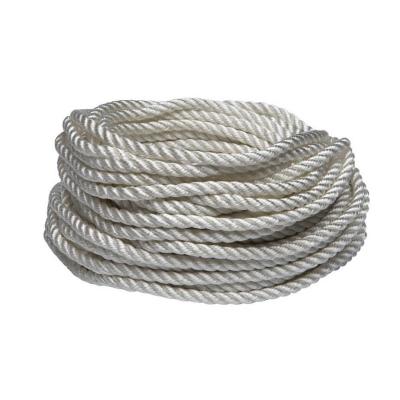What Type of Anchor Rope Do I Need For My Boat?
Posted by ANCHOR-CADDIE.COM STAFF

What Type of Anchor Rope Do I Need For My Boat?
When it comes to boating, having the right equipment is crucial for a safe and enjoyable experience. One important piece of equipment that often gets overlooked is the anchor rope. Choosing the right anchor rope for your boat is essential to ensure that your anchor holds securely and that you have peace of mind while out on the water.
Rope Material:
- Nylon: Nylon ropes are the most popular for anchor lines due to their strength, elasticity, and resistance to UV rays and abrasion. They are also lightweight and easy to handle, making them a top choice for most boaters.
- Polypropylene: Polypropylene ropes are affordable and float on water, however, since they float, they are not a good choice for anchoring and are a hazard to a boat running over the floating rope and getting caught in the propeller. They are better used for pulling floating toys.
- Polyester: Polyester ropes are known for their excellent resistance to UV rays and abrasion. They are strong, durable, and have minimal stretch, but they tend to be more expensive.
Rope Diameter:
The diameter of the rope you choose will depend on the size and weight of your boat. As a general rule, a larger and heavier boat will require a thicker rope to handle the load and provide adequate strength. It is recommended to consult the manufacturer's guidelines or a boating expert to determine the appropriate rope diameter for your specific boat.
Rope Length:
The length of the anchor rope is also an important consideration. The general rule of thumb is to have at least 7-10 times the depth of the water as the length of the rope. For example, if you are boating in 20 feet deep water, you would need a minimum of 140-200 feet of anchor rope. This length allows for proper anchoring and ensures that the anchor has enough scope to hold securely.
Additional Considerations:
- Strength: It is crucial to choose a rope with adequate strength to handle the weight and stress of your boat.
- Quality: Invest in high-quality ropes, as they are less likely to fray or break under pressure.
- Storage: Properly store your anchor rope to prevent tangling or damage.
- Backup: Always carry a spare anchor rope in case of emergencies.
Remember, the anchor rope is an essential component of your boat's anchoring system. Choosing the right type of anchor rope based on material, diameter, and length will ensure that you have a reliable and secure anchoring solution for your boat. Prioritize safety and invest in high-quality ropes to enjoy worry-free boating adventures!


